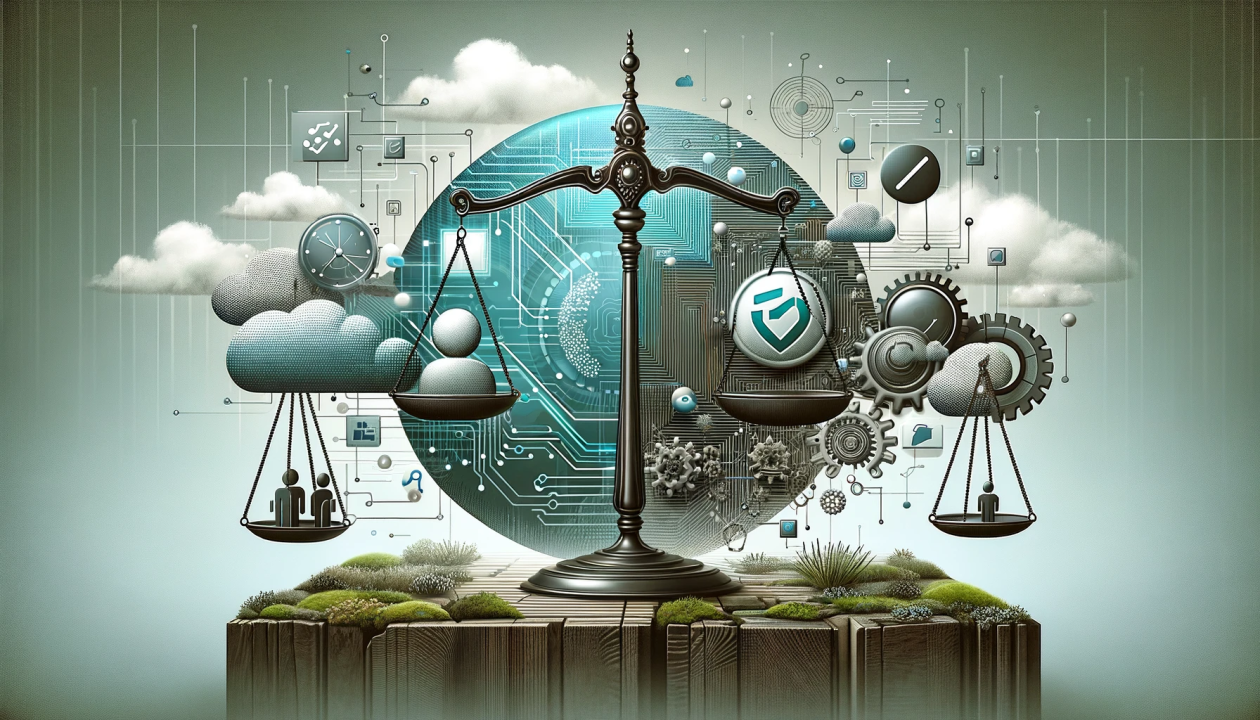Tech ethics has become a critical focal point in today’s rapidly evolving technological landscape. With each innovation, the ethical implications become increasingly complex and nuanced. As technology continues to permeate every aspect of our lives, it prompts pressing questions about privacy, equality, and its broader societal impact. The advent of artificial intelligence, biotechnology, and data-driven technologies has brought these ethical considerations to the forefront of public discourse. Concerns about algorithmic bias, data privacy, and digital surveillance highlight the need for thoughtful reflection and ethical decision-making in the development and deployment of technology. Moreover, the digital divide exacerbates inequalities, underscoring the importance of addressing technological equity. To navigate these ethical challenges, interdisciplinary collaboration and the development of ethical frameworks are essential. By prioritizing ethical considerations in technological innovation, we can strive to ensure that technology serves the greater good while upholding fundamental ethical values and principles.
Ethical Considerations in Artificial Intelligence
Artificial intelligence (AI) poses a myriad of ethical dilemmas that demand careful consideration. From concerns regarding algorithmic bias and discrimination to questions surrounding accountability and transparency, the ethical implications of AI are multifaceted and complex. As AI systems evolve to become more autonomous and pervasive across various domains, it becomes increasingly imperative to ensure that they are developed and deployed ethically. Addressing algorithmic bias requires meticulous examination of training data and algorithmic decision-making processes to mitigate the risk of perpetuating discriminatory outcomes. Furthermore, transparency and accountability mechanisms are essential to foster trust and ensure that AI systems operate ethically and responsibly. By implementing robust ethical guidelines and frameworks, stakeholders can navigate the ethical challenges posed by AI. More so, they harness its transformative potential for the benefit of society while upholding fundamental ethical principles.

Privacy and Data Protection
The proliferation of data-driven technologies has raised significant concerns about privacy and data protection. From social media platforms to smart devices, the collection and use of personal data raise ethical questions about consent, ownership, and surveillance.
The Digital Divide and Technological Equity
Access to technology is not equitable, leading to disparities in education, healthcare, and economic opportunity. Bridging the digital divide requires addressing issues of affordability, accessibility, and digital literacy to ensure that everyone can benefit from technological advancements.
Ethical Considerations in Biotechnology
Advancements in biotechnology, such as gene editing and biometric identification, raise ethical questions about genetic manipulation, privacy, and consent. Balancing the potential benefits of these technologies with the risks and ethical concerns is crucial for responsible innovation.
The Role of Tech Companies and Corporate Responsibility
Tech companies have a significant influence on the ethical implications of technology. From developing ethical guidelines to promoting diversity and inclusion, corporate responsibility plays a vital role in shaping the ethical landscape of the tech industry.
Government Regulation and Policy
Government regulation and policy also play a crucial role in addressing ethical concerns in technology. Regulations regarding data privacy, cybersecurity, and the ethical use of AI are essential for protecting individuals’ rights and ensuring accountability.
Ethical Frameworks and Guidelines
To navigate the moral dilemmas of modern technology, ethical frameworks and guidelines are essential. These frameworks provide a set of principles and guidelines for developers, policymakers, and users to ensure that technology is developed and used in a way that aligns with ethical values and principles.
Conclusion
In conclusion, addressing the moral dilemmas of modern technology requires a concerted effort from all stakeholders. By considering ethical considerations in AI, prioritizing privacy and data protection, promoting technological equity, and embracing corporate responsibility and government regulation, we can work towards a future where technology serves the greater good while upholding ethical values and principles.

